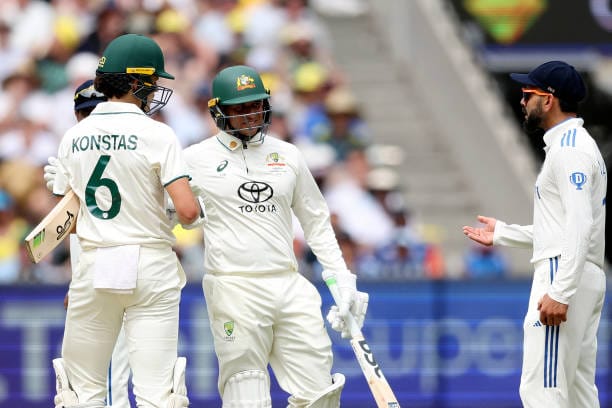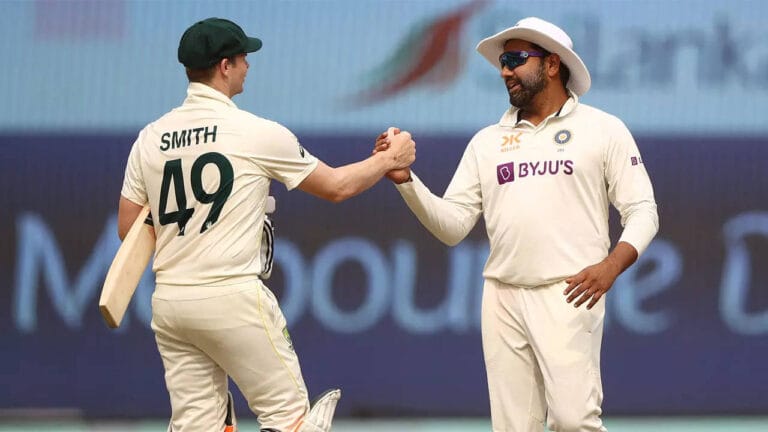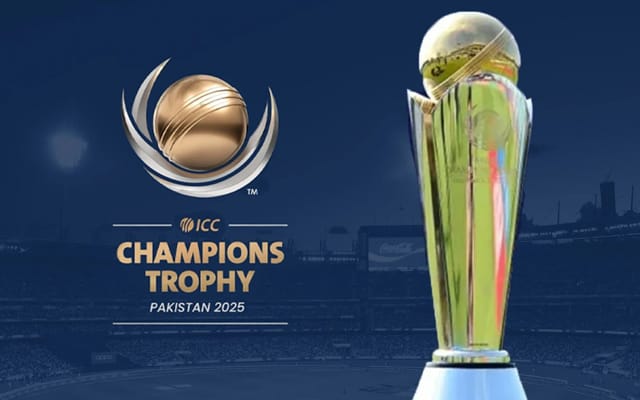
(Associate Press)
In the recent IPL season, Harshit Rana of Kolkata Knight Riders emerged as a standout among the promising young Indian bowlers. His exceptional performance on the field garnered attention not only for his skill but also for his noticeable aggression. Rana, however, clarified his perspective on his approach during matches.
One memorable incident occurred during the match against Sunrisers Hyderabad at Eden Gardens in Kolkata on March 23. Rana unleashed his now-famous ‘flying kiss celebration’ after dismissing Mayank Agarwal, which quickly went viral. Another instance was during a match against Delhi Capitals, where he gestured with a ‘shushing’ celebration, drawing further attention.
Despite the buzz generated by his celebrations, Rana faced repercussions when he received a one-match ban, along with fines, as it was his second offense. His actions sparked discussions on social media platforms. Nonetheless, the fast bowler’s season was marked by significant success, as he played a pivotal role in Kolkata Knight Riders clinching their third title. With a tally of 19 wickets, he ranked as the fifth-highest wicket-taker of the season.
Harshit asserts that his perceived aggression stems from his passionate, emotionally-driven style of play. He acknowledges that emotions naturally surface during intense moments on the field. However, he hinted at a shift in his approach, indicating that he may refrain from direct celebrations in front of the opposing batsman. For him, the primary focus is on winning rather than fostering friendships on the field. He candidly admitted to feeling irked when Porel hit him for 16 runs in his initial over, a moment that particularly struck a nerve.
In an interview with Indian Express, Rana spoke about whether he would cut down on the aggression, “Sawaal hi nahi hota (Not a chance). Next time I will make sure that I will not use it as a send-off. This is my cricket. I have always played my cricket like this. Mai off the field bahut fun hun aap kisi se puch lo but ab cricket field dosti karne thodi na aaye hai (I am a fun-loving guy off the field but on the cricket pitch, I am not there to make friends, I want to win). Abhishek Porel smacked me for 16 runs in my first over. Ab chakke lagenge to ego hurt hoga na, smile toh nahi karunga na (If someone hits you for sixes you can’t laugh). In the next over, I took his wicket, the celebration was my redemption but I got banned”.
He inquired about the stereotype suggesting that cricketers hailing from Delhi often display aggression, similar to senior players like Virat Kohli and Ishant Sharma. However, the pacer views this characteristic as something distinctive that sets them apart and contributes to their longevity at the pinnacle of the sport.
He commented, “This tag has been given to us. Hum Dilli wale hai, emotional hai, aur dil se khelte hai (We are from Delhi we play cricket with our heart). This Delhi’s aggression has made Virat Kohli the Virat Kohli he is. Ishant Sharma played 100 Test matches, and Rishabh Pant did that miracle at Gabba. Gautam Gambhir won two World Cup finals for India”.
Following an outstanding IPL season and consistent performances in domestic cricket, the pacer stands poised for a potential national team selection. With established bowlers like Mohammed Shami facing age-related challenges and injury setbacks, there’s a growing need to identify India’s next prominent paceman. Harshit Rana emerges as a strong contender to secure a spot in the Indian squad in the coming times.




